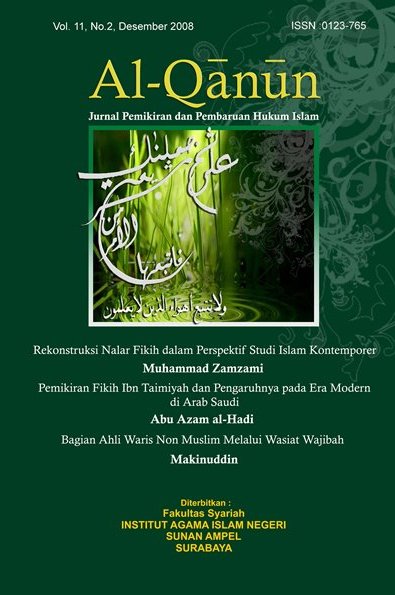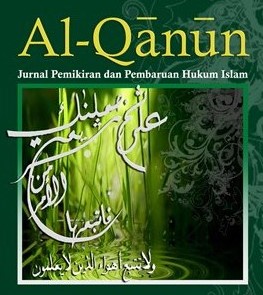Hilat al-Hukm, Kebutuhan atau ‎Penyimpangan (Perkembangan Teori Hukum ‎Islam)‎
DOI:
https://doi.org/10.15642/alqanun.2008.11.2%20Des.336-351Keywords:
teori Hukum Islam, hilat al-hukmAbstract
Within the study of Islamic legal history we are informed that there are two differing major schools of law in relation to the use of human intellect in the interpretation of the law. The first group is those who relied on the tradition of the prophet whereas the second group is those who depended on human rational thinking. The first group was known as ahl al-hadith with Imam Malik ibn Anas as the eponym and the second group grew in Kufah and Baghdad with Imam Abu Hanifah as the eponym.
On the other hand, on the course of Islamic legal history there were four items which were considered as product of Islamic law, they were theoretical writings, legal opinions, court decisions and Islamic governments’ regulations. Each has its distinct features therefore needs special attention.
this article discusses legal stratagem (hilat al-hukm) which is a product of islamic jurists interpretation of law. This article explains its definition and its importance as well as controversies surrounding its applicability. In addition, it also discusses whether legal stratagem remains relevant in providing answers for novel legal cases nowadays or it just a kind of abuse of islamic legal theory.
This writing is a bibliographical research in which opinions of muslim jurists and scholar of islamic legal theory are cited along with their arguments. It is concluded that legal stratagem remains relevant for out time and cannot be considered as legal abuse





